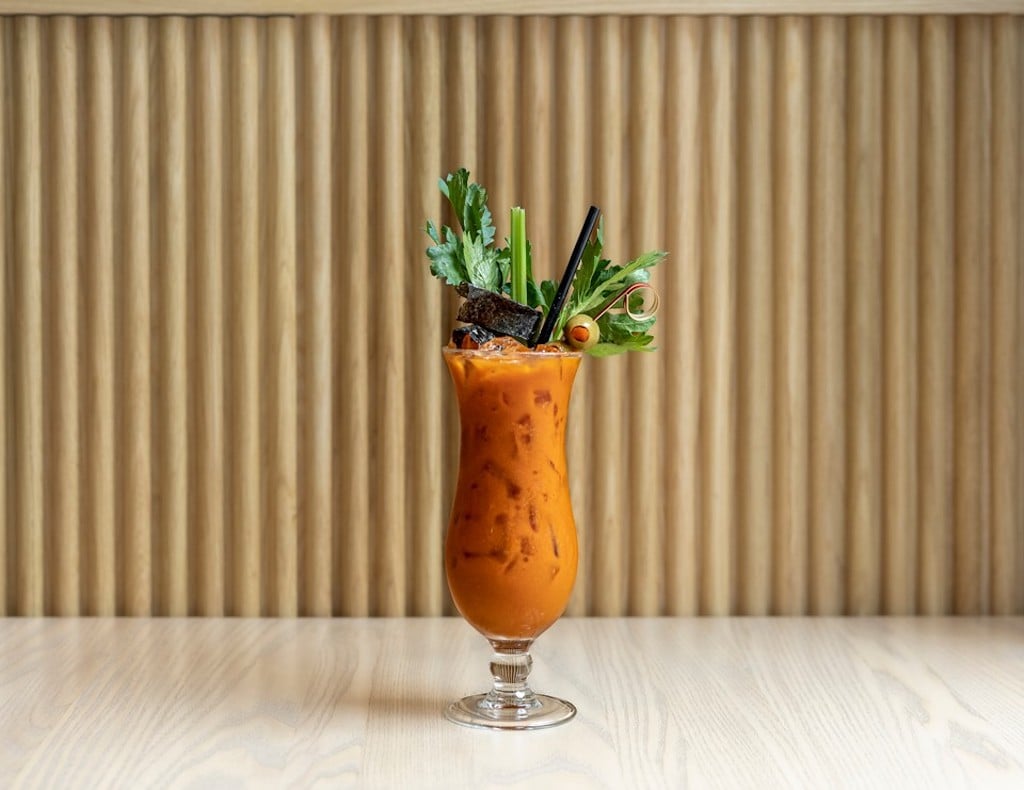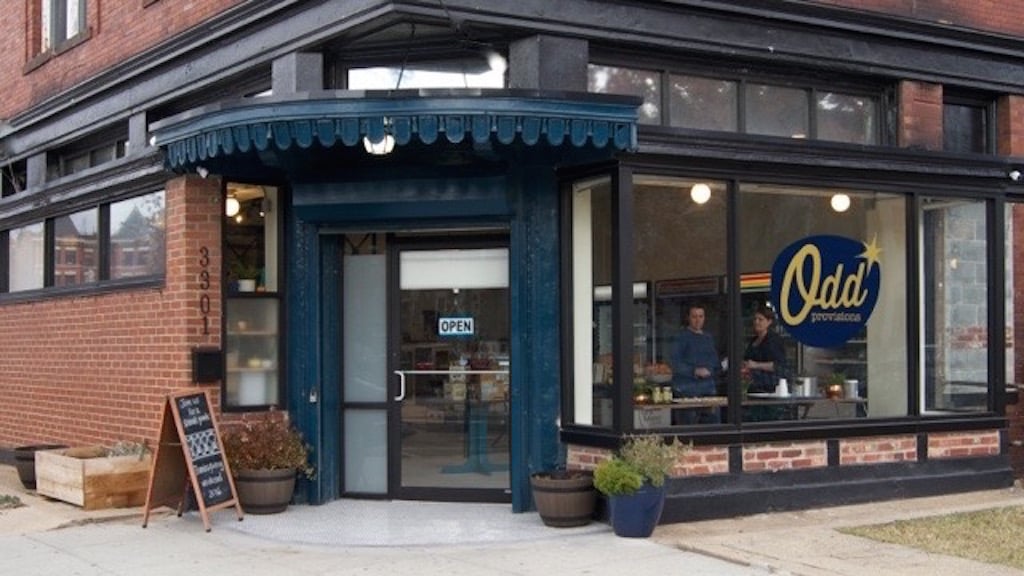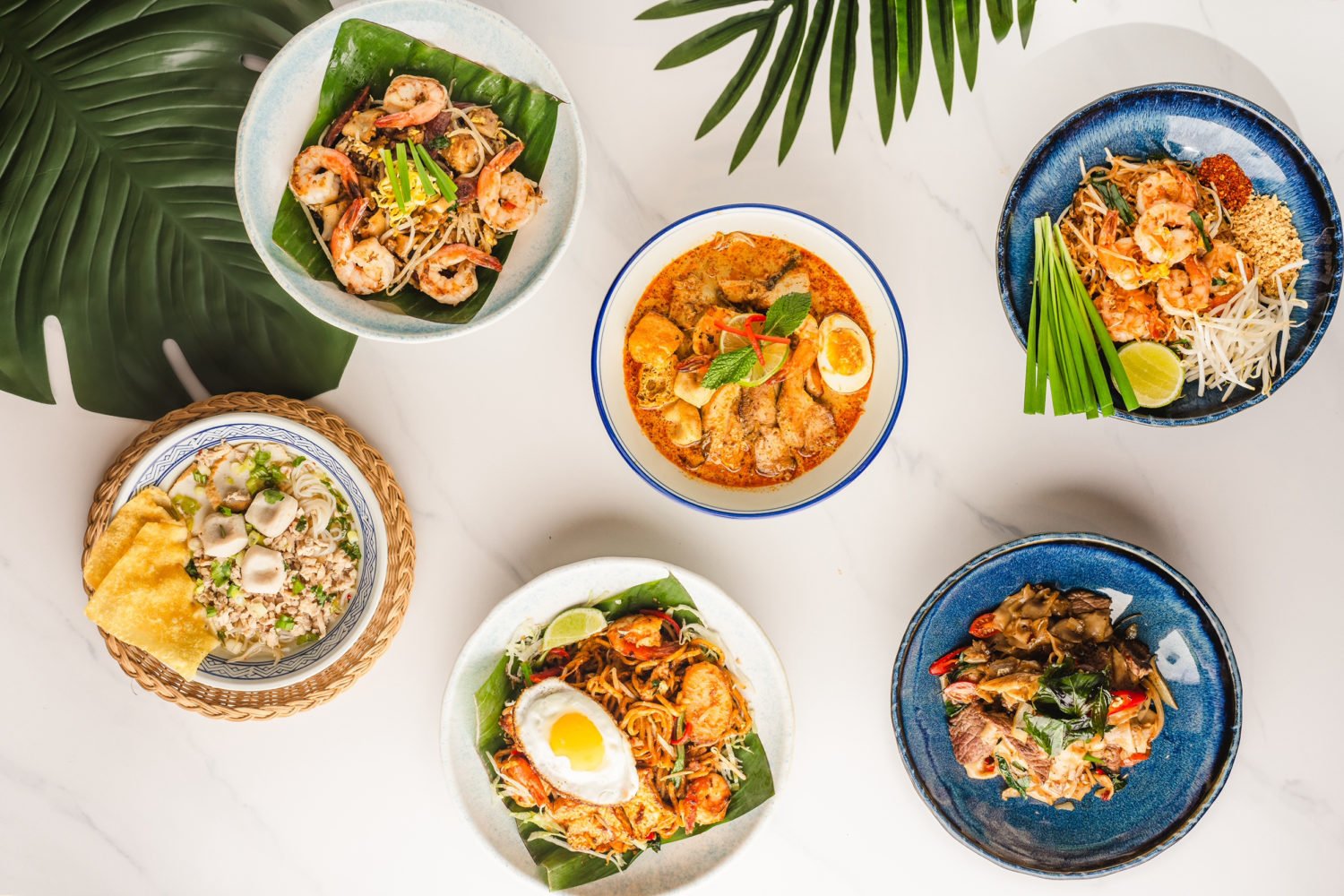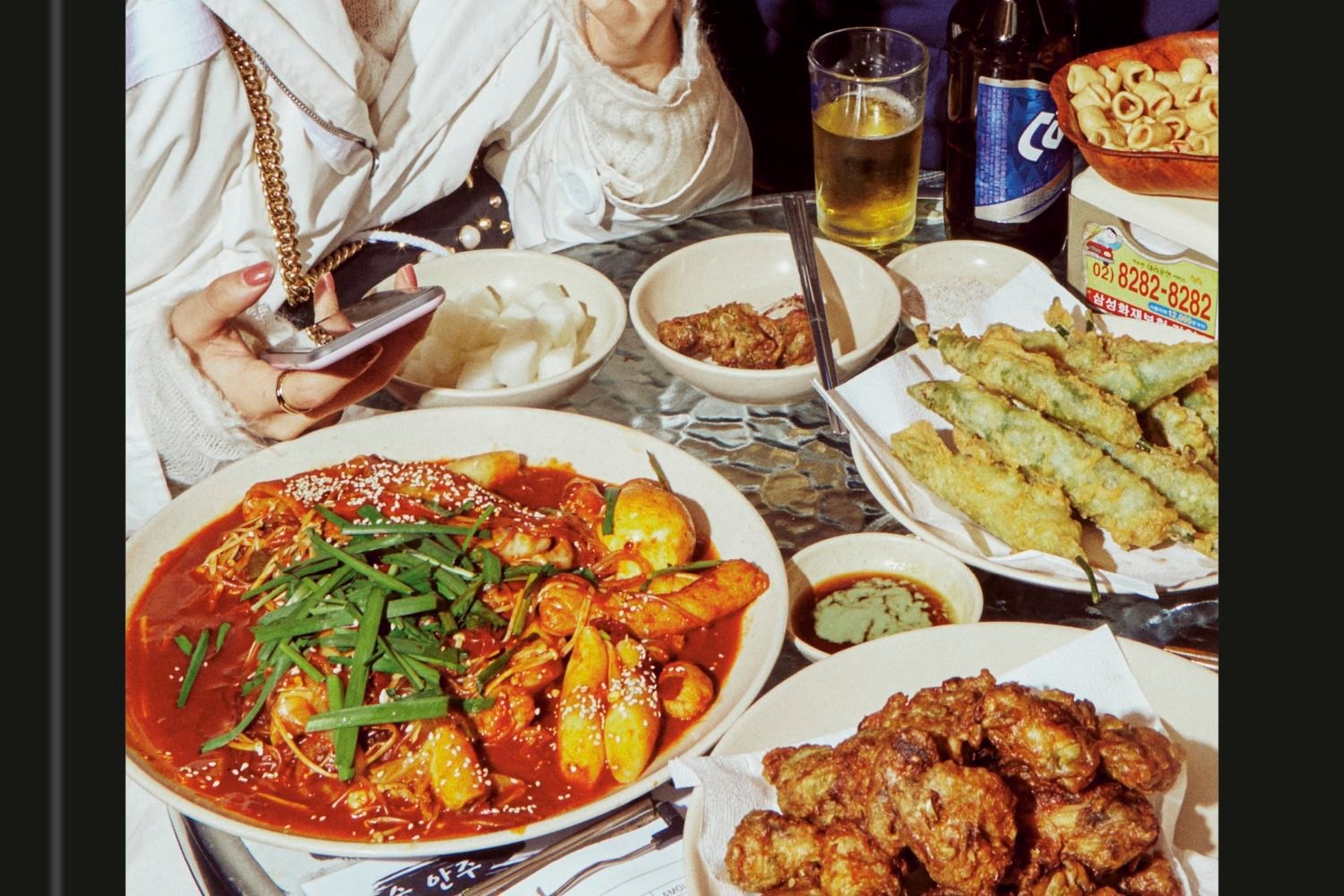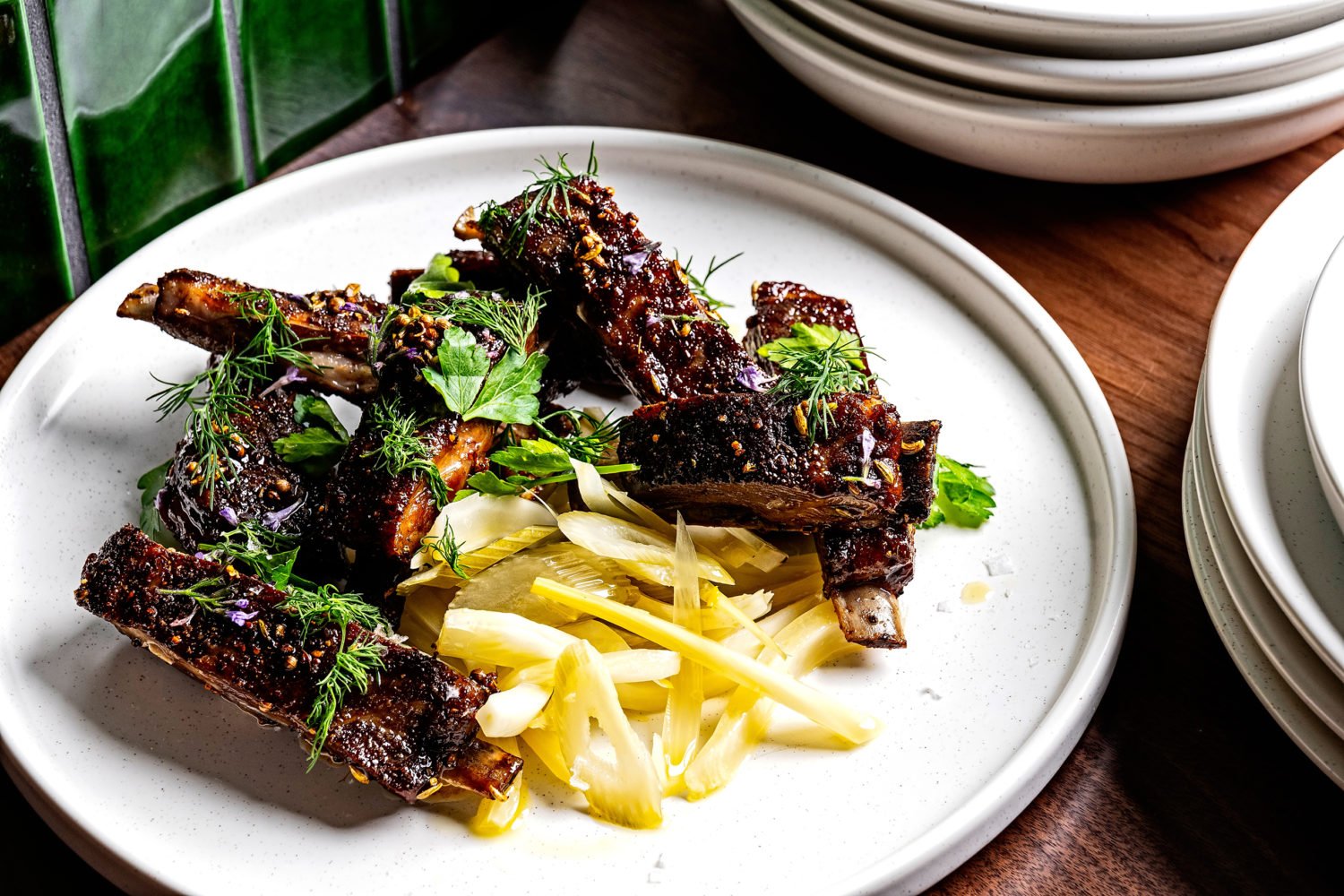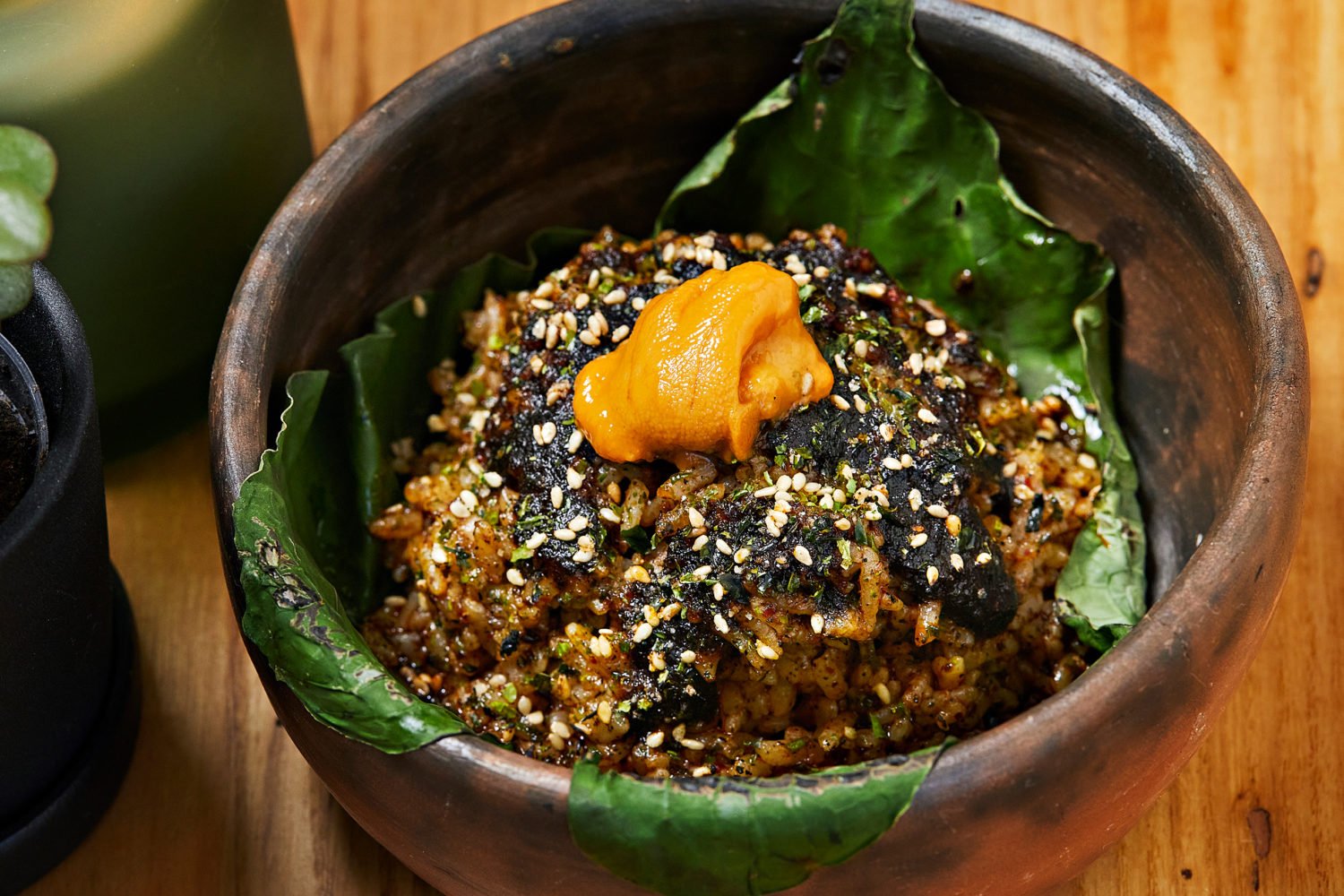
Jean-Louis Palladin died in 2001, but in many ways the flamboyant chef who dazzled diners at the Watergate throughout the 1980s and ’90s lives on: in the Jean-Louis Palladin Foundation; in the dishes of Michel Richard, who carries on the chef’s freewheeling gastronomic legacy at Citronelle; and in the life and work of his wife, Régine Palladin. For more than a decade she has run Pesce, an intimate seafood bistro near Dupont Circle—this after never cooking at or managing a restaurant before. What was once her husband’s vision is now her own. “It took the death of Jean-Louis for people to realize who I was,” she says.
Theirs was a tumultuous romance, full of love and betrayal, anger and retribution—but also abiding devotion.
At 19, Régine met Jean-Louis Palladin at his restaurant in Gascony, France. The couple came to Washington in 1979 so Palladin could open Jean-Louis at the Watergate. In the 1990s, Washington Post critic Phyllis Richman called him “perhaps the most famous French chef in America.”
Jean-Louis was renowned for his passion for local foods as well as his passion for women. With a wild mop of brown hair, he may have looked like Weird Al Yankovic, says longtime friend Timothy Dean, but he was smooth. “He had this really, really deep voice,” recalls Dean, who owns Timothy Dean Bistro in Baltimore. “Once he opened his mouth, he got your attention. He was a flirt.”
“He was magnetic,” says Eric Ripert, another colleague, now the chef at Le Bernardin in New York City. Ripert says Jean-Louis was a teenager at heart: He’d scream in the kitchen and give away a thousand dollars’ worth of truffles to please a client.
In 1993 Jean-Louis Palladin and Roberto Donna opened Pesce near Dupont Circle. When customers appeared in droves, Palladin asked his wife to look after the place.
The late ’90s were hard: Jean-Louis at the Watergate was shut down by new management, and the Palladins’ marriage fell apart. When Jean-Louis moved to Las Vegas to run a new restaurant, he left his share of Pesce to Régine. By 2000, Jean-Louis was back on the East Coast, working at his new place in Manhattan, when he was diagnosed with lung cancer. After treatments in New York and at NIH, he lived out his final month at his old home in McLean with Régine. He was 55.

Photograph courtesy of Jean-Louis Palladin Foundation.
Do you still consider Jean-Louis’s tastes when you’re making decisions?
It’s possible. At some point, it was very difficult to be Régine Palladin. After we divorced, I wanted to be Régine. I had my business card say just Régine. It was so silly. Very quickly I realized I would always be associated with him.
You’ve had a long line of chefs at Pesce. What are you like as a boss?
I give my chefs full freedom. I can taste—that’s what I do best, guide them. Overall, I got along with the non-American chefs better than I did with the American chefs. They had a sense of business and duty in the kitchen.
I pretty much know what I want. It’s simple food. When Jean-Louis was coming in, he really reinforced it. He would say, “You’re going in the right direction.”
He was known as a womanizer . . . .
You know, we were deeply rooted. When I met Jean-Louis, I hate to say he was nobody, but he was not famous. I knew him inside out. When I was giving speeches after his death, I would say, “I knew Jean-Louis for many years. I was occasionally his wife.” And everyone was laughing. That was the best way I could have put it because it was true—and since everyone knew. He was always the father of my children. He was always a fantastic friend.
During your separation, Jean-Louis at the Watergate closed. Was he having a bit of an identity crisis—not knowing what to do with his life?
It was major. Can you imagine this guy who was brought to fame to suddenly have nothing? Everything crumbled around him. We were communicating because we were always communicating. I have letters where he’s telling me how difficult it is.
Many people wanted to say their goodbyes to Jean-Louis. But toward the end, you turned away some of his friends.
Oh, absolutely. People don’t realize how lucky they are. I said, “Do you have good memories of Jean-Louis?” They said, “Yes,” and I said, “Keep them.” Because cancer is a sickness that really, really is disgusting. I mean, I could lift him in my arms. He was a big, tall guy. He was looking like he was 90 years old. Who wants to see that?
What was it like once Jean-Louis was back at your home?
Friends would come and bring him white truffles—just for the smell, because he could not really eat; they had cut his esophagus, so he could not eat. What a karma. But Michel Richard was coming all the time. Some of Jean-Louis’s best friends from France came and stayed for two days in the house. They were saying goodbye. We knew that.
Did he have any final requests?
One day he wanted a stuffed hen, like we did in Gascony. So I did the stuffed hen. We had food for like 50 people, and of course nobody ate it—I mean, the nurses and my kids a little bit. Then one day he decided he wanted to cook. We have pictures of that: He’s at the table, and he has these long knives and he’s cutting—but he’s obviously lost the coordination. There are pots and pans everywhere. But I think it’s wonderful. I told my children, “You come down now because your father is cooking.” It was incredible.
That must have been a Friday. Then on Saturday, Michel Richard came to visit, and Alain Ducasse was there that day. We chatted for a while. Then Jean-Louis says, “Why don’t you take them? Go for a while for lunch. I need to rest.” So I took Michel and Alain to an Asian market. Then my phone rings and it’s my sister-in-law and she says, “You have to come back!”
Jean-Louis decided the thing that he cooked, he wanted to clarify it. So he has the two nurses and my sister-in-law and pots and pans everywhere. He has taken everything out, and he’s ordering, “Do this! Do that!” And people are lost. My sister-in-law is a vegetarian; she’s not a cook. She doesn’t know what to do. She’s panicking because she thinks he’s going to hurt himself. And he’s getting more and more anxious because they don’t obey him. And they don’t know what to do. He’s screaming at everybody.
So I come home and it’s a disaster. I say, “What are you doing?” And he says, “I need to cook!” So we had a huge table—we are bringing all the food that we bought. We sat there, everyone around the table—Michel, Alain Ducasse, his fiancée, my-sister-in-law, the nurse, my kids. I remember singing, and we ate a little bit of things. And it was wonderful. Then I had to clean the kitchen for hours. I saw it as his last time as chef.
The next day he died.
Yes, Sunday. That Monday we took care of all the arrangements for the cremation. Then I was in the house and I was looking around and I said: “What do I do?” It’s terrible, the emptiness.
I needed to go back to the restaurant, and I did, and everyone was wonderful. And you know, life goes on.
This interview appeared in the March, 2008 issue of The Washingtonian.






